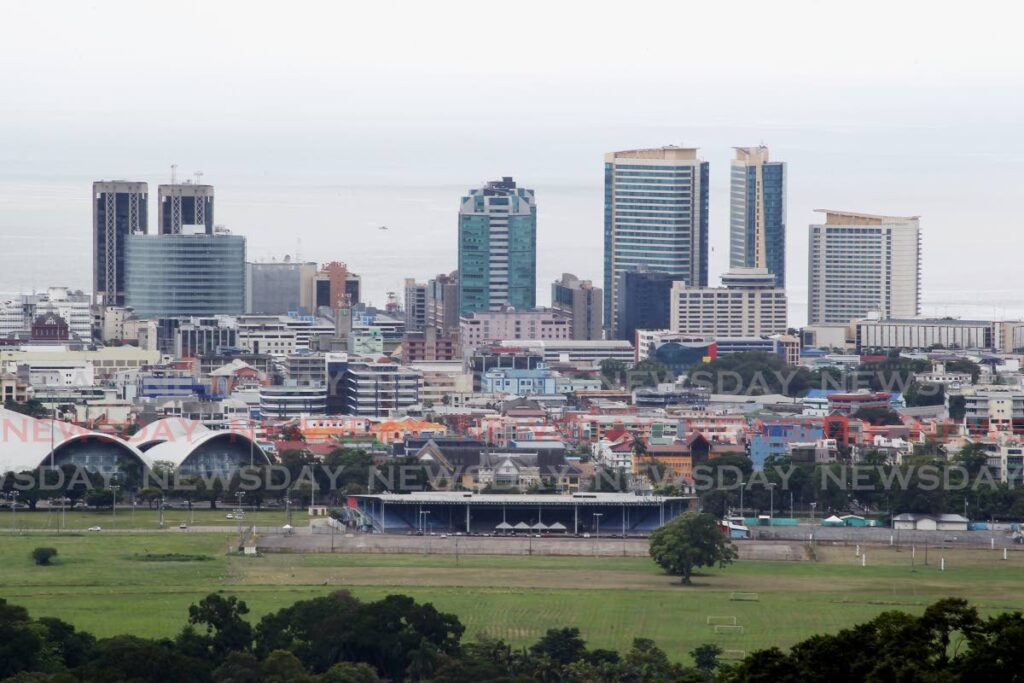Economist Dr Marlene Attz 'optimistic' about Moody's, IMF ratings

Despite predicting a strong rebound for the TT economy next year of 5.9 per cent, Moody's rating agency downgraded the country's credit profile due to the Government's high spending to cope with the covid19 pandemic which had worsened the GDP-to-debt ratio to almost 90 per cent.
The agency also strongly warned such growth could be jeopardised by a lack of diversification away from oil and gas which were grounded in mature fields and by a local need to partially transition to renewables.
Moody's had said government borrowing to handle the pandemic had slightly weakened Trinidad and Tobago’s credit profile from Ba1 ("speculative elements") to Ba2 ("speculative"), where Ba is midway down a nine-tier scale from Aaa to C, with each tier split into sub-tiers of one (best) to three (worst).
However economist Dr Marlene Attz made a more restrained forecast for both the highs and lows predicted by Moody's, namely growth and risks respectively.
She recently told Business Day the downgrade of TT's creditworthiness was "not significant."
Conversely she viewed as "optimistic" Moody's prediction of 5.9 per cent growth despite it echoing the IMF's prediction of 5.7 per cent.
Attz said Moody's had reinforced, not opposed, a recent IMF report on the Government's handling of the pandemic.
She said TT had faced a "perfect storm" of reduced revenues due to low energy prices and the pandemic's economic fallout.
"Covid19 has really exacerbated what was a previously bad situation."
She said heavy borrowing and withdrawals from the Heritage and Stabilisation Fund during the pandemic had worsened the debt-to-GDP ratio, even as citizens were also partly protected by Central Bank monetary initiatives such as relaxing moratoria.
Attz looked ahead. "The IMF says we will probably have some decent growth, strong economic recovery, but amid a high level of uncertainty.
"Why? Because we're not vaccinated, we're still heavily dependent on the energy sector, and still have a high debt-to-GDP ratio.
"The Government has been trying its best but there are several things that need to be done simultaneously."
Business Day asked about Moody's and the IMF predicting 5.9 and 5.7 per cent growth.
Attz said, "These are what we call in economics 'dependent on all other things being equal' – assuming you get your vaccinations under control, assuming you can reopen your economy, assuming (good) energy prices and your production levels go up.
"I'd be cautious on that (5.9 per cent), as it depends on the extent to which the economy is able to return to a level of 'normalcy', which itself depends on managing covid19."
She admitted to some worry over TT's high debt, incurred to buy vaccines and fund the Government's pandemic social programmes.
While TT has not defaulted on its debt, she expected to see another draw-down on the Heritage and Stabilisation Fund.
"We're probably going to incur more debt to pay the debt and those things are not sustainable.
"But it is understandable given the circumstances in 2020, why the Government had to incur that kind of debt. Covid19 was a crisis and you had to address it. It continues to be a crisis."
She mulled the IMF's call for a flexible foreign exchange rate for TT.
"There's a very sound economic argument here, but there is also the people impact.
"Once you allow the exchange rate to depreciate or be more flexible, there will be a domino effect."

She said foreign exchange rate flexibility could worsen food prices in TT, amid food security threats to small economies like TT due to current supply-chain disruption.
"That is a recipe that would leave an extremely bitter taste in the population's mouth.
"Now is not the time for that conversation because of the ripple effects it will have on consumers and their quality of life.
"I don't think the population can take any more pressure at this time."
She said the IMF warned TT must not "put all its eggs in the energy basket." Energy revenues faced risks from global price volatility and a promised 15 per cent cut in local emissions by 2030.
"That cut is not insignificant, for a country that has not really embarked on a serious conversation around reduction of greenhouse gas emissions."
She urged public education on climate change issues.
Attz said citizens should mull what reduced emissions will mean locally, for transportation, industry and electricity generation.
"It's a lot being thrown at the Government, a lot of strands you have to deal with, which lever to pull when and working out the implications. Pulling one lever, what will be the domino impact? It is an unenviable task they face.
"They rolled back the fuel subsidy but now the conversation is around subsidies to state enterprises."
Attz urged a calibrated plan to use the energy sector to restructure the economy into non-energy areas.
"Moving forward, it is not an easy feat. Several things need to be adjusted, simultaneously or sequentially."
She added, "Economic recovery and growth has to be predicated upon vaccination, like a cause and effect."
Attz advocated the population's buy-in for an urgent plan to cut TT's carbon footprint.
"There has to be a concentrated and concerted effort at public education so people understand what this means for us."
While energy was still TT's lifeblood, she urged a plan to lift the manufacturing and tourism sectors, plus digitisation, by new infrastructure and incentives.
Attz lamented 31 deaths and 600 covid19 cases in one day recently.
"Getting people vaccinated is the first priority. The Government's job was to procure and they procured. It's now up to the people."
Full vaccination of the population would give TT a starting point, Attz said.
"The threat of covid19 won't be eliminated but reduced, so we can start to address other things - business reopening, ease of doing business indicators, getting people back out to work, getting productivity back up.
"If we continue living under the cloud of covid19, afraid of its impact, it will take us even longer to recover and will mean even more hardship."

Comments
"Economist Dr Marlene Attz ‘optimistic’ about Moody’s, IMF ratings"